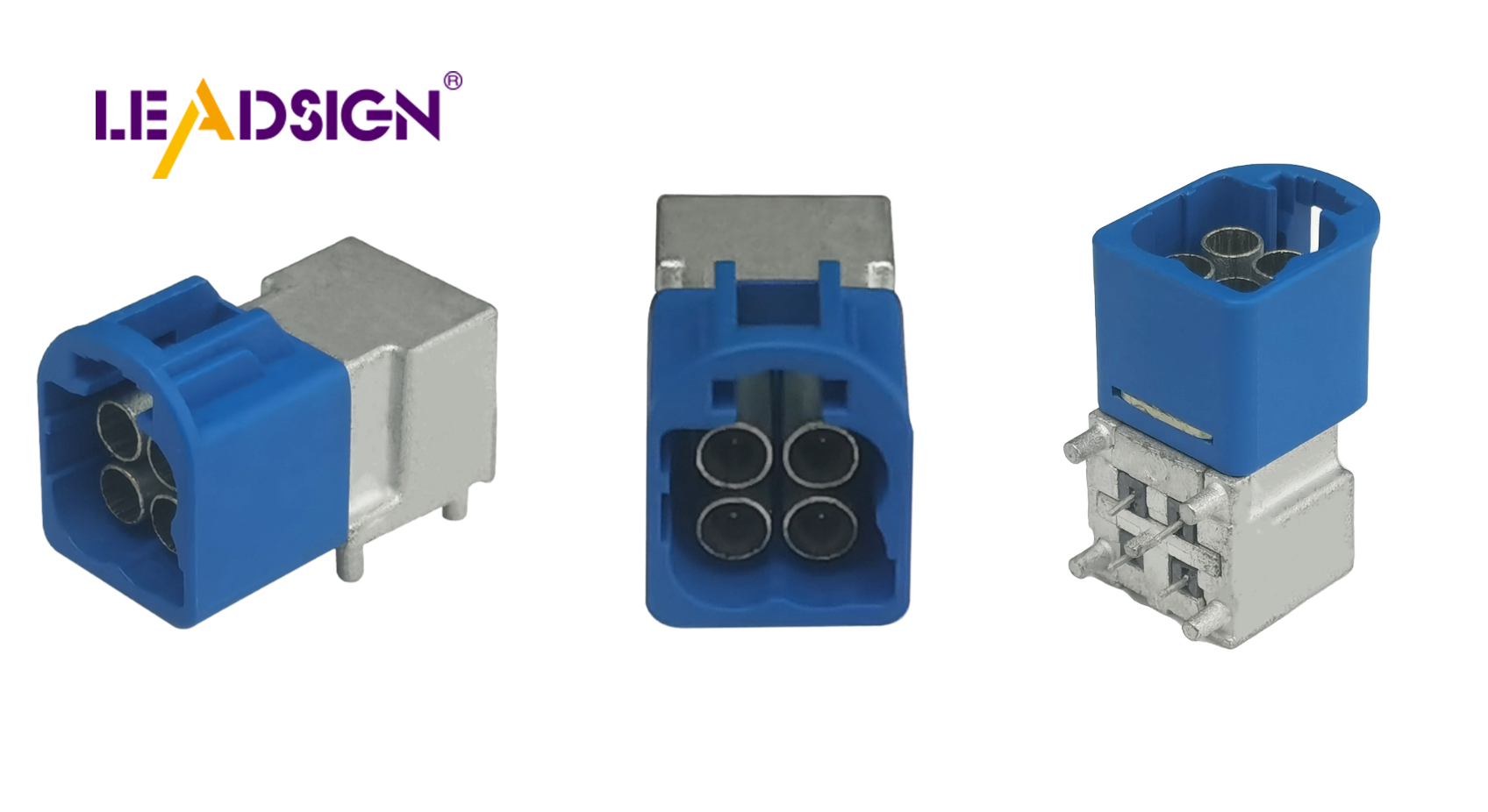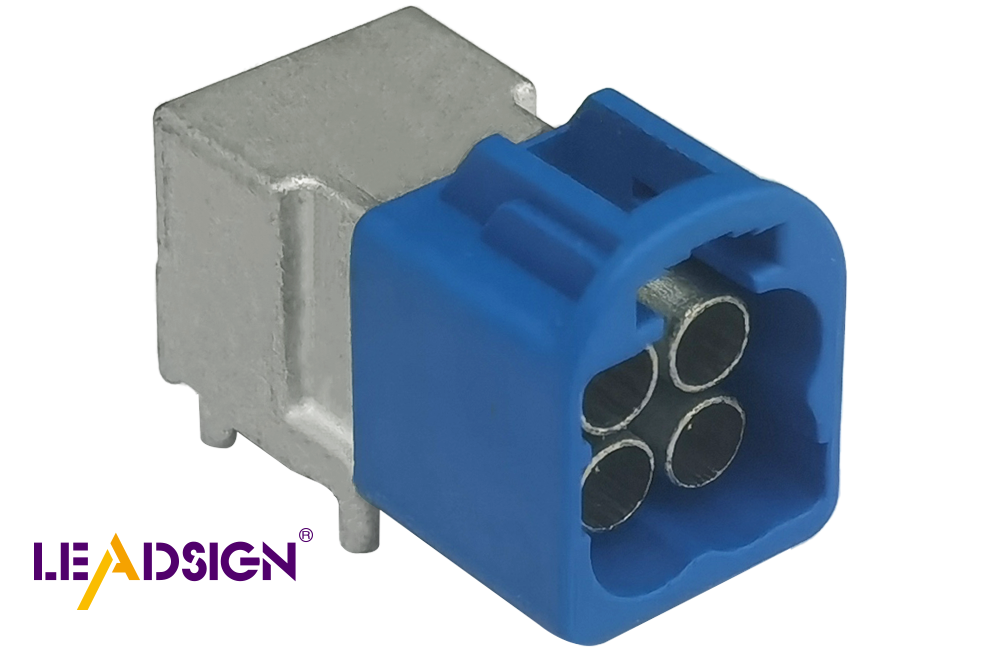How to Identify Automotive Wiring Connector Types for DIY Projects

Finding automotive electrical connectors types is important for DIY projects. It helps you pick the right ones, stopping electrical problems that might harm your car's safety and work. Knowing these connectors lets you take care of your car better, saving money on repairs. Checking and caring for connectors often makes them last longer and work well. If you love cars, knowing about different automotive electrical connectors types helps you do projects with confidence. This knowledge not only improves your skills but also keeps your car working well.
Basics of Car Electrical Connectors
What are Car Electrical Connectors?
Definition and Purpose
Car electrical connectors are key parts in your car's electric system. They link different electric parts, making sure signals and power move smoothly. These connectors have various shapes and sizes for specific jobs in your car. Whether it's high-power contacts for batteries or crimping systems for wires, these connectors make fast and safe setups possible. They ensure good performance, making them vital for keeping your car working well.
Common Uses in Cars
You can find car electrical connectors almost everywhere in your vehicle. They help send electric signals across different systems. For example, they power things like the engine control unit and radio. Without good connectors, your car's electronics wouldn't work right, causing problems with performance and safety. Connectors like pigtail ones link wiring harnesses to parts such as sensors and switches, helping modern cars run smoothly.
Types of Car Electrical Connectors
Blade Connectors
Blade connectors are very common types of car electrical connectors. You use them often for low-voltage tasks. They have a flat metal piece that fits into a matching slot. This design makes connecting and disconnecting easy, perfect for places needing frequent care.
Bullet Connectors
Bullet connectors look like small bullets with their round shape. You use them when you need a strong connection. They fit tightly to prevent accidental disconnection. These are used in lights and sound systems where being reliable is important.
Pin Connectors
Pin connectors are flexible and handle high power needs well. You might see them in headlights or starter motors systems. They have many pins fitting into matching sockets, ensuring steady connections. These are crucial for sending data signals and carrying high-voltage currents.
Specialty Connectors
Specialty connectors meet special needs inside your car. They include waterproof locking branch cable types or right-angle blade terminals. These are made for tight spots or tough conditions, keeping your car’s electric system strong and dependable.
How to Identify Different Connector Types

Finding automotive electrical connectors types can be hard. But with some tips, you can learn fast. Let's check out ways to spot these important parts in your DIY work.
Visual Identification Techniques
Shape and Size
Look at the shape and size of automotive electrical connectors types first. They come in shapes like blade, bullet, or pin. Each has a special design for a job. Blade connectors have flat metal that fits slots, easy to use. Bullet ones are round and fit tight so they don't come loose by accident. Knowing these shapes helps you pick the right connector quickly.
Color Coding
Color coding is useful too. Many automotive electrical connectors types use colors to show their job or match. You might see red, blue, or yellow on them for different wire sizes or uses. This makes it simple to find the right connector for wires easily. Watch for these colors when working on projects.
Using Tools for Identification
Multimeter
A multimeter is great for finding automotive electrical connectors types. It checks voltage, current, and resistance to see if a connector works well. By testing if a connector connects circuits right, you know it's good to use. This tool helps a lot with tricky wiring where just looking isn't enough.
Connector Identification Kits
Connector kits are helpful too. These kits have many connectors with guides and pictures. They help match what you have with kit pieces so you find the right one fast. Some kits even have tools to crimp and fix connectors tightly.
Automotive Connector Specialist: "Wire connectors are key parts in any vehicle's electric system. These small but important pieces link circuits smoothly."
Using these tips and tools lets you find automotive electrical connectors types confidently for your DIY tasks. This skill boosts your knowledge and keeps your car's electric system strong and working well.
Practical Tips for DIY Projects
When you start a DIY car project, picking the right connector is key. It helps your car's electrical system work well and safely. Let's look at some easy tips to help you choose wisely.
Choosing the Right Connector for Your Project
Fit with Car Systems
First, make sure the connector fits your car's systems. Different cars need different automotive electrical connectors types. Check your car's manual or look online to find the right one. Using a wrong connector can cause problems or damage parts of your car.
Strength and Material Choices
Next, think about how strong and what materials the connectors are made of. You want ones that can handle tough conditions in your car. Look for connectors made from good materials that don't rust or wear out fast. This makes them last longer and stay connected well. For example, connectors in engine areas should resist heat, while those near water should be waterproof.
Common Mistakes to Avoid
Avoiding mistakes can save time and trouble. Here are some things to watch out for:
Wrong Connector Choice
A common mistake is picking the wrong connector type. This happens if you ignore its details like pin count or shape. Always check these things carefully. If unsure, use a kit with guides and pictures to find the right match easily.
Bad Installation Habits
Another mistake is not installing correctly. Good installation keeps connections safe and lasting long. Use proper tools like crimpers to attach wires tightly to connectors. Methods like crimping, soldering, and heat shrinking each have benefits: Crimping gives a strong bond; soldering offers great conductivity; heat shrinking adds protection.
Automotive Connector Specialist: "Wire connectors are key parts in any vehicle's electric system. These small but important pieces link circuits smoothly."
By following these tips, you'll be ready for DIY car projects confidently. Knowing different automotive electrical connectors types and avoiding mistakes will improve skills and keep your car’s system working well.
Knowing the right car wiring connectors is key for DIY work. It helps your car's electric system run well and safely. When working, check connector shapes, pin numbers, and colors. This helps you choose wisely and boosts your skills.
Connector Experts: "Picking the wrong one can cause problems or harm. Look at shape, count pins, and think about what your car needs."
Using these tips makes your car better and gives you pride in good work.
See Also
Exploring HSD Connectors in Automotive Technology
Discovering Advantages of Fakra Auto Connectors
In-depth Look at HSD Connector Technology

